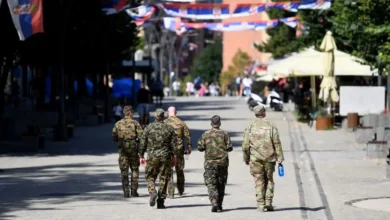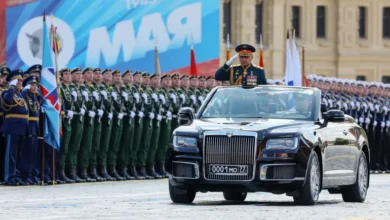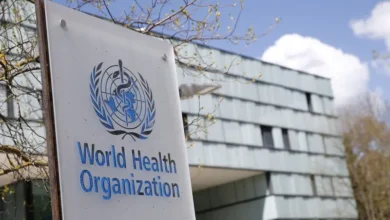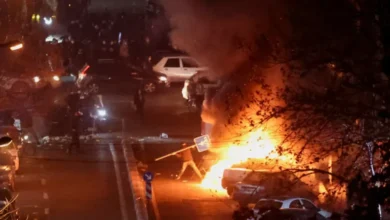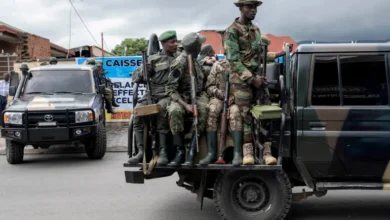Sudanese stuck as passports locked in abandoned Western embassies
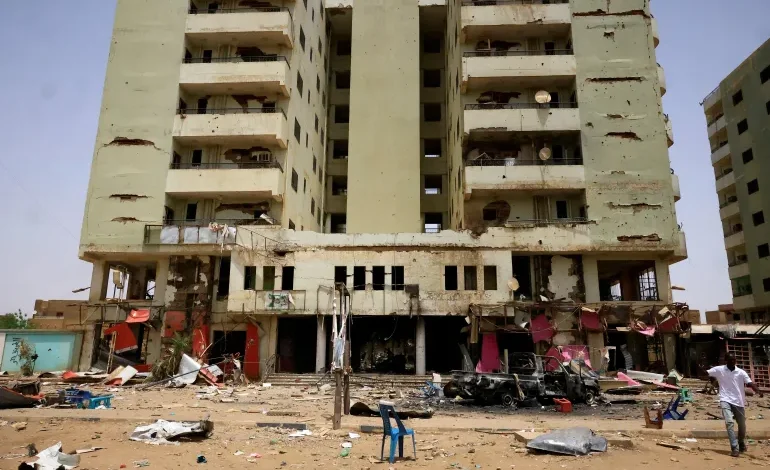
In late March, Ahmad Mahmoud submitted his passport and visa application to the Swedish embassy in Khartoum, the capital of Sudan. He never imagined they would not give his travel document back.
But when fighting broke out between the Sudanese army and paramilitary Rapid Support Forces (RSF), Swedish diplomats suspended consular services and fled the country within days.Mahmoud communicated with a Swedish diplomat via WhatsApp, begging for her to find a solution where he could either retrieve his passport or at least receive a stamped copy from the Swedish embassy.
He knew he could not legally escape the country without one.
“Please let me know when I can be ready to take my passport. I need to be ready to leave my country. My building is not safe anymore,” Mahmoud wrote to the Swedish diplomat in a series of texts he shared with Al Jazeera.
“As mentioned, I’m deeply sorry to say that it’s not possible,” the diplomat replied.Mahmoud is one of the hundreds of Sudanese visa applicants – maybe even thousands – now trapped in war zones after Western diplomats evacuated the country without returning their passports.
Diplomats or civil servants from countries such as England, Sweden, Germany, the Netherlands, and Spain have since washed their hands of responsibility or failed to find adequate solutions, lawyers and those stranded told Al Jazeera.
Sudanese nationals, whose passports are locked up in evacuated Western embassies in Khartoum, said some Western civil servants told them to apply for a new one from local authorities.
However, Sudan’s de facto authorities are embroiled in an armed conflict that has killed more than 500 people and displaced tens of thousands to neighbouring countries such as Egypt, Chad, South Sudan and Djibouti.“Even if the bombing gets worse then I won’t be able to leave because I don’t have my passport,” Mahmoud said. “I’m sure [the diplomats] don’t care about [Sudanese embassy] staff, let alone myself who applied for a stupid visa.”Families separated
Sudanese visa applicants who could not retrieve their passports have been unable to flee with their loved ones to neighbouring countries.
Ashraf Malik, 23, said his sister and mother left for Egypt with their small children. He stayed behind with his brother to try and retrieve his passport from the Spanish embassy, where he had applied for a visa earlier this month to attend a conference.
When the war started, Malik called the embassy’s emergency number but the woman on the other line refused to help him.
“She asked me if I was Spanish. When I said I wasn’t, she hung up and refused to talk to me,” he told Al Jazeera.
Because of the ongoing fighting in Khartoum, Malik left with his brother for Port Sudan, which remains relatively safe from the fighting, for now. Shortly after arriving his brother boarded a ship to Jeddah, Saudi Arabia.
‘More frustration’
Sudanese dual nationals living abroad are also struggling to get their governments to find a solution for their loved ones.
One man, who is a doctor in the United Kingdom, said he called the visa application centre multiple times to ask if his wife can get her passport back from the embassy in Khartoum, which is closed.
He asked Al Jazeera not to disclose his or his wife’s name for fear the British Home Office could later deny their visa requests because of his criticism of the way they are handling the situation.
He said he wished the British authorities would at least send his wife an electronic version of her passport.
“I don’t know why things are so slow. Every time I call [them], I just end the conversation with more frustration. I just want a resolution,” he said.
Al Jazeera contacted the UK Home Office, but it did not provide a comment at the time of publication.
However, Home Office Secretary Suella Braverman recently told reporters the UK had no plans to introduce safe asylum channels for Sudanese nationals. She added the focus was strictly on evacuating UK citizens and their dependents.
